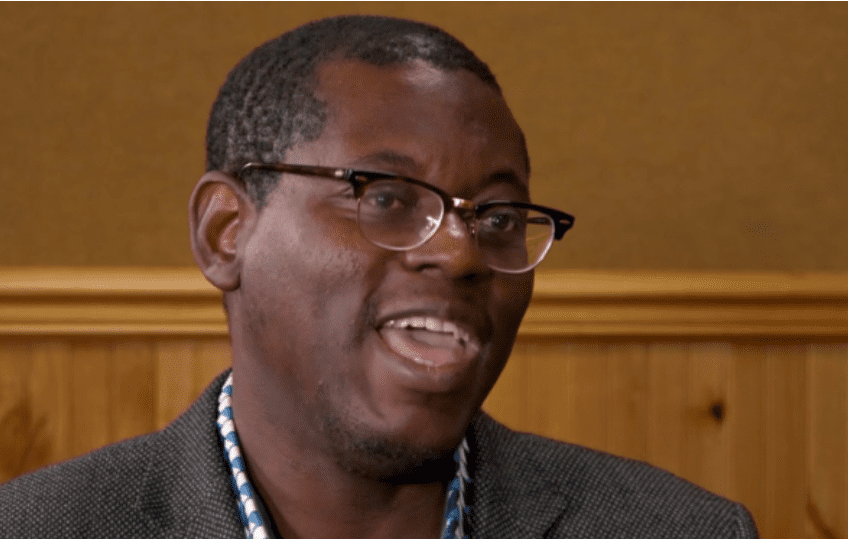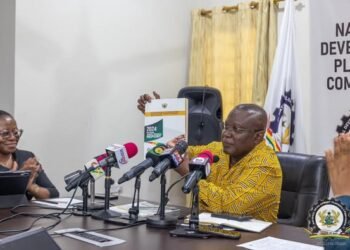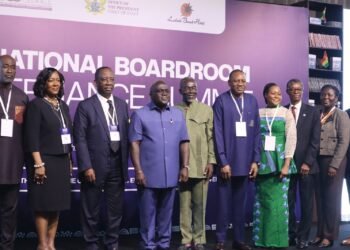Public outrage in recent times, surged as the Electricity Company of Ghana (ECG) disclosed a GHS 10.2 billion loss in 2023, of which GHS 8.3 billion was attributed to exchange rate losses alone, highlighting not only ECG’s vulnerabilities but also the broader lack of transparency in key national institutions.
Civil society activists, including Bright Simons, Honorary Vice President of IMANI Centre for Policy and Education, and Benjamin Boakye of African Centre for Energy Policy immediately called for thorough scrutiny of ECG’s financial dealings, with particular attention to its transactions with Fidelity Bank.
Following the long advocacies for action, some civil society organizations (CSOs) have filed a lawsuit against both ECG and Fidelity Bank, igniting a new call for accountability and shedding light on the significance of collective civil action in holding powerful institutions accountable.
Bright Simons, a longstanding advocate for transparency and good governance, did not mince words in his endorsement of the CSOs’ legal move.
“I wholeheartedly endorse the decision by CSOs to sue Fidelity Bank & ECG. The request that the High Court scrutinise their procurement dealings is precisely the kind of accountability drive Ghana needs”.
Bright Simons, Honorary Vice President of IMANI Centre for Policy and Education
For Bright Simons, the lawsuit represents a necessary step toward transparency, where corporate and public institutions are expected to face public scrutiny for the choices that impact millions.
“Don’t get me wrong. Businesses are the lifeline of every economy. Nowhere is the need for strong, vibrant, & innovative businesses more critical than in Africa. But businesses, whether in Africa or elsewhere, must operate with a social license. They must add value to lives or, at the very least, do no harm”.
Bright Simons, Honorary Vice President of IMANI Centre for Policy and Education
He underscored that corporate actors must acknowledge their accountability to the societies they serve, asserting that when corporations avoid this responsibility, the consequences often harm the communities around them, as exemplified by the environmental devastation in Nigeria’s Niger Delta and the health crises caused by the tobacco industry worldwide.
Strategic Litigation Against Public Participation
This need for accountability and corporate responsibility, however, is often obstructed by what Bright Simons described as “SLAPPs,” or strategic litigation against public participation.
According to him, these are intimidation tactics in which wealthy corporations use legal threats to suppress civil society voices. He cautioned that SLAPPs are not only harmful to democracy but a severe threat to accountability in corporate governance.
“Corporate actors and the businesses they need to be extremely mindful of their social license and their role in the governance of the countries in which they are corporate citizens,” Bright Simons urged, emphasizing that corporations should not resort to such aggressive tactics to avoid answering critical governance questions.

Role of CSOs in Addressing Systemic Governance Issues
Moreover, the IMANI’s Honorary Vice President pointed out that the case against Fidelity and ECG serves as a reminder that, in many instances, civil society must confront both government and corporate entities to address systemic governance issues.
He noted that in Ghana, civil society has often been on the frontlines of advocating for transparency, despite the barriers imposed by the political and economic power wielded by corporate interests.
Bright Simons highlighted that “civil society solidarity is critical” in these instances, adding that the responsibility of good governance cannot rest on the shoulders of a few.
When social movements are isolated, he explained, they become more vulnerable to fragmentation by powerful actors who seek to dilute their influence.
The lawsuit according to him, is particularly significant as it signals a broad civil society push for accountability in Ghana.
He emphasized that by scrutinizing ECG and Fidelity Bank, the suit aims to bring transparency to procurement practices that have, until now, remained unchecked due to the considerable influence of those involved.
For Bright Simons “It won’t be an easygoing quest, and this is just a start”, asserting that the solidarity shown among civil groups is a powerful statement of resilience, proving that “the spirit of accountability is unbowed, unbent, and unbroken.”
Through this case, Ghanaian activists are sending a clear message that institutions entrusted with public welfare must operate transparently and ethically, without hiding behind economic or political privilege.
As Bright Simons affirmed, this is indeed “a marathon”—a long-term effort in which every step taken by activists, CSOs, and citizensstrengthens the foundation of accountability in Ghanaian governance.
The outcome of the case could shape the country’s approach to corporate accountability and set a precedent for future civil actions against opaque dealings in public institutions.
READ ALSO: IMANI Dissects NPP, NDC Promises to Control Systemic Fiscal Irregularities





















